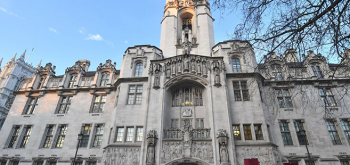One in five psychologists instructed as expert witness in the family courts was deemed ‘inadequately qualified for the role’, in a new report out today. Evaluating Expert Witness Psychological Reports: Exploring Quality, funded by the Family Justice Council and carried out by the University of Central Lancashire (UCLan), considered 126 expert psychological reports submitted in family court proceedings from 180 court bundles across three courts.
‘I was surprised at some of the practices exposed – for example, the use of a commissioning witness company in one court that took a payment for referral and the use of associates to undertake large elements of the reports. If the valuable role played by experts is to be maintained and nurtured there is a need for vigilance on the part of all people within the family justice system to maintain its integrity.’ Ian Robertson
Key findings included:
- The qualifications of 20% of instructed psychologists evaluated as ‘inadequately qualified’ for the role on the basis of their submitted CV;
- Some 90% of instructed experts had no clinical practice according to CVs;
- Two thirds of the reports reviewed were rated as below expected standard;
- In one court, all expert witness psychology reports were generated by witness companies taking a commission for instructions;
- Reports rated as ‘very poor’ or ‘poor’ were characterised by a number of factors: use of graduate or assistant psychologists to compile case background and interview parents, overuse of psychometrics, absence of support for opinion, and making uninformed psychological statements.
‘The crucial decisions made by family courts on issues such as the custody of children, domestic violence and sexual violence have life changing consequences,’ said UCLan’s Professor Jane Ireland, author of the report. ‘… [We] were concerned about the limited stated qualifications and current clinical experience of some of the experts commissioned to provide reports. Only one in 10 of those producing court reports appeared to maintain a clinical practice but seem to have become full time professional ‘expert’ witnesses.’
The report made recommendations for good practice including:
- Expert witnesses should be registered to practice with the Health Professionals Council and be members of the British Psychological Society;
- The competence of experts should be more thoroughly assessed by the judiciary; and
- Not relying on expert witness commissioning companies as a marker of potential good quality reports.






